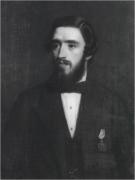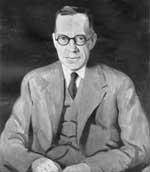|
|
||||||||||||||||||||||||
 |
Featured person
Recently added |
Dr David Walker (1837 - 1917): |
||||||||||||||||||||||

|
| Dr David Walker |
David Walker was born in Belfast in 1837. He attended RBAI and, when only 14, went to Queen's College, Belfast, to study medicine. At the age of 19, he became a licentiate of the Royal College of Surgeons in Dublin. In 1857, he volunteered to serve without pay on the ship, the Fox, under Captain FL McClintock, on an expedition to search for Sir John Franklin who had left England 12 years earlier with more than 100 men to try to discover the North West Passage. None of the party returned and various expeditions tried unsuccessfully to find out what had happened to them.
David Walker was appointed surgeon, naturalist and photographer on the ship. He was only 20 years of age when the Fox left Aberdeen on 1 July, 1857. The expedition lasted more than two years, including 250 days trapped in the ice. His duties included making sure no crew members suffered from scurvy and getting up during the night to read scientific instruments, provided by the Royal Society. The expedition was successful and discovered evidence of the fate of Franklin and his crew. The Fox docked at London on 23rd September, 1859. Their news was widely reported in newspapers and illustrated journals. An exhibition of their findings opened in London in October 1859.
McClintock's account of the journey of the Fox, including a scientific appendix by David Walker, appeared within a couple of months and became an instant bestseller. The Westminster parliament awarded £5,000 to the crew of the Fox, and McClintock and the navigating officer, Allen Young, received knighthoods.
On 20th October, 1859, The Irish Times reported that David Walker had arrived in Dublin on his way back to Belfast, and also that he dined with the Lord Lieutenant to talk of his adventures. On 25th November he spoke to the Royal Dublin Society. Over the next few years, he continued to give papers about the expedition and to receive various honours. On 7th March, 1860, a report of his was published by the Royal Society. He was elected a member of the Royal Irish Academy, a fellow of the Royal Geographical Society and a fellow of the Linnean Society, and received the Arctic Medal.
After an expedition to British Columbia to collect flora specimens, he crossed the Canadian-American border. On 4th March, 1865, he reported to General Ben Alford at Fort Vancouver, Washington State, for duty as a surgeon with the US cavalry. He served with the American army for the next 14 years on the northwest frontier, during the Indian wars, which took him to all sorts of wilderness and desert in Oregon, Arizona and Montana.
After leaving the army, he became, first, the resident doctor, and then, from 1883 to 1887, the US government land registrar, in the infamous Californian gold mining town, Bodie. With a population of 6,000-8,000 in the 1880s, Bodie was notorious for its violence, as well as its many bars, gambling dens and brothels. In June 1879, a San Francisco newspaper complained that "there are at least 60 saloons in the place and not a single church".
In April 1889, he moved to Portland, Oregon, where he served as a medical practitioner. The New York Times recorded his death on 11th May, 1917.
| Born: | 1837 |
| Died: | 1917 |
| Peter Froggatt |
| Acknowledgements: Professor Brian M Walker, Queen's University, Belfast |


Home | Our Policies | Plaques | Browse | Search | Sponsors | Links | Help | Contact
Privacy & Disclaimer | Cookie Policy | Site Map | Website Design By K-Point
© 2024 Ulster History Circle









